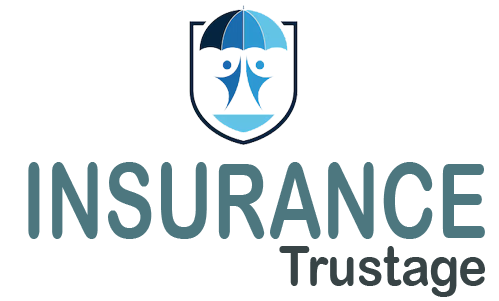What is Umbrella Insurance and how does it work?
Umbrella Insurance is a type of extra liability coverage that extends beyond your standard home, auto, or renters insurance. It provides additional protection if you’re sued for damages that exceed the limits of your primary policies. Umbrella insurance covers legal fees, medical costs, and damages for incidents like car accidents, property damage, or personal liability (e.g., defamation). It kicks in once your base insurance limits are exhausted. This policy is especially useful for those with significant assets or high-risk exposures.
Do I need Umbrella Insurance if I already have high limits on my home and auto policies?
Even if you have high limits on your home and car insurance, Umbrella Insurance offers additional coverage that those policies may not. It covers legal costs, personal injury claims like defamation, and incidents beyond your primary insurance, such as accidents involving rental properties or lawsuits from abroad. If your assets or risk exposure are significant, umbrella insurance provides extra protection for peace of mind.
How do I know if I have enough liability coverage before purchasing Umbrella Insurance?
To determine if you have enough liability coverage before purchasing Umbrella Insurance, consider these three points:
- Assess Your Assets: Calculate the total value of your assets, including your home, vehicles, savings, and investments. Your liability coverage should be high enough to protect these from potential lawsuits.
- Example: If your assets total $1.5 million, you may want at least $1.5 million in liability coverage.
- Evaluate Risk Exposure: Consider activities or properties that may increase your likelihood of being sued, like owning rental properties or having a swimming pool.
- Example: If you rent out a property, umbrella insurance can cover liability beyond what a standard policy offers.
- Review Current Policy Limits: Check the limits of your current home and auto insurance policies to ensure they match your asset value. If not, umbrella insurance may help bridge the gap.
- Example: If your auto policy covers $300,000 but a lawsuit awards $600,000, an umbrella policy can cover the extra $300,000.
What is the difference between Umbrella Insurance and Excess Liability Insurance?
Umbrella Insurance and Excess Liability Insurance both provide additional liability protection, but they differ in scope. Umbrella insurance offers broader coverage by extending beyond just increasing liability limits. It can cover personal injury claims like defamation, slander, and libel, as well as legal defense costs, even if these are not included in your primary policies. It also applies across multiple underlying policies, such as home, auto, and renters insurance.
Excess Liability Insurance, on the other hand, simply increases the limits of your existing policies without adding new types of coverage. It only applies to claims already covered by your primary policies, so it doesn’t provide the broader protection that umbrella insurance offers. Essentially, excess liability insurance is a narrower, more limited form of extra coverage that kicks in after your primary policy’s limits are reached.
Does Umbrella Insurance cover lawsuits from car accidents?
Yes, Umbrella Insurance (often referred to as comprehensive liability coverage) can cover lawsuits resulting from car accidents when the damages exceed your auto insurance limits. For example, if you’re found at fault in a major car accident where the total damages and medical bills are $800,000 but your auto policy only covers $300,000, umbrella insurance would cover the remaining $500,000. It also helps cover legal fees if you’re sued, ensuring your assets are protected beyond what your standard auto policy offers.
Does Umbrella Insurance cover business-related liabilities?
Umbrella Insurance typically does not cover business-related liabilities unless you have a separate business liability policy in place. While it extends coverage over personal assets and provides additional liability protection beyond home and auto insurance, it usually excludes incidents that occur during business operations. This means that if you run a business from home or have a side gig, any claims related to business activities may not be covered under your personal umbrella policy.
For example, if you’re a freelance graphic designer and a client sues you for not delivering work on time, your personal umbrella insurance likely won’t cover the legal fees or damages associated with that lawsuit. Instead, you would need a business liability policy specifically designed to address claims related to your professional services. Having a tailored business insurance plan ensures that you’re protected against various liabilities that can arise in a professional context, safeguarding your personal and business assets.
Can Umbrella Insurance cover rental property liability?
Umbrella Insurance can provide liability coverage for rental properties, but specific terms may vary based on the policy and insurer. If you own rental properties, umbrella insurance can help protect you from liability claims arising from incidents such as tenant injuries or property damage. For example, if a tenant is injured due to an unsafe condition on your property and sues you for $500,000 in damages, but your primary landlord insurance only covers $300,000, your umbrella insurance could cover the remaining $200,000. However, it’s essential to confirm with your insurance provider that your umbrella policy includes coverage for rental properties, as some insurers may have exclusions or specific requirements for landlords.
Does Umbrella Insurance cover incidents that happen outside the U.S.?
Umbrella Insurance typically provides coverage for accidents that occur outside the United States, making it a valuable asset for travelers. This global coverage means that if you are involved in an incident while abroad that results in bodily injury or property damage, your umbrella policy can help protect you financially. However, the specifics of this coverage can vary between insurers, so it’s crucial to check the details of your policy to confirm that international incidents are included.
For example, suppose you are on vacation in Europe and accidentally cause a car accident that injures another driver and damages their vehicle. If the total damages and medical expenses amount to $700,000, but your auto insurance only covers $300,000, your umbrella insurance could cover the remaining $400,000, assuming it has adequate limits. This additional protection can be especially important in countries where legal and medical costs can be significantly higher than those in the U.S.
It’s important to note that while many umbrella policies include international coverage, some may have limitations or exclusions for specific situations or countries. Therefore, before traveling, you should review your policy and discuss any concerns with your insurance agent to ensure you have comprehensive protection for accidents that may occur while you’re outside the U.S.
How do I file a claim with my Umbrella Insurance policy?
To make a claim on your Umbrella Insurance policy, you typically need to follow a series of steps that begin with notifying your insurance company about the incident. First, gather all relevant documentation, including any police reports, medical bills, and photographs of the incident, as these will support your claim. Once you have your information ready, contact your insurance provider to report the claim, providing them with a detailed account of what happened. They may guide you through the necessary paperwork and inform you about any additional information required for processing your claim.
For example, if you were involved in a car accident that resulted in injuries to another party and property damage, you would first report the incident to your auto insurance company and file a claim under that policy. If the damages exceed your auto policy’s limits, you would then contact your umbrella insurance provider. You would provide them with the initial claim details from your auto insurer, including any documentation you collected, and inform them of the potential for additional liability. The umbrella insurance will then step in to cover any remaining costs that exceed your auto policy limits, ensuring you are protected from financial losses associated with the accident. It’s essential to keep detailed records throughout this process and maintain communication with both your auto and umbrella insurance providers.
Will my Umbrella Insurance premiums go up if I file a claim?
Yes, filing a claim on your Umbrella Insurance policy can lead to an increase in your premiums, although this may vary depending on several factors, such as the nature of the claim and your insurance provider’s policies. Insurance companies often consider claims as a sign of higher risk, which can prompt them to adjust your rates. However, not all claims result in significant increases, and some insurers may offer accident forgiveness programs that allow your premiums to remain stable after your first claim.
For example, if you file a claim for $500,000 in damages resulting from a car accident, your insurer may reassess your risk profile during the next renewal period. Depending on their underwriting guidelines, they might raise your premiums by a certain percentage, reflecting the increased likelihood of future claims. In contrast, if you have a history of safe driving and no prior claims, the increase might be minimal. It’s always a good idea to discuss potential premium implications with your insurance agent when you purchase your policy or file a claim, so you are fully aware of how claims may impact your costs in the future.
Can Umbrella Insurance protect me from cyber liability or identity theft lawsuits?
Umbrella Insurance typically does not provide coverage for cyber liability claims or identity theft, as these issues are generally considered separate risks that require specialized insurance policies. Cyber liability insurance is specifically designed to protect businesses and individuals from the financial consequences of data breaches, cyberattacks, and other online threats. Similarly, identity theft insurance helps cover the costs associated with recovering from identity theft, such as legal fees and lost wages. Since umbrella policies primarily extend liability coverage for personal injuries and property damage, it’s essential to obtain specific policies tailored to cyber risks to ensure comprehensive protection.
For example, if you fall victim to a cyberattack that exposes your personal information and leads to fraudulent charges on your accounts, an umbrella insurance policy would not cover the resulting financial losses or legal fees. In this case, having identity theft insurance would be crucial, as it could help reimburse you for expenses related to restoring your identity, such as legal consultation and credit monitoring services. To adequately protect yourself against these emerging threats, it is advisable to consider purchasing separate cyber liability and identity theft insurance in addition to your umbrella policy.

